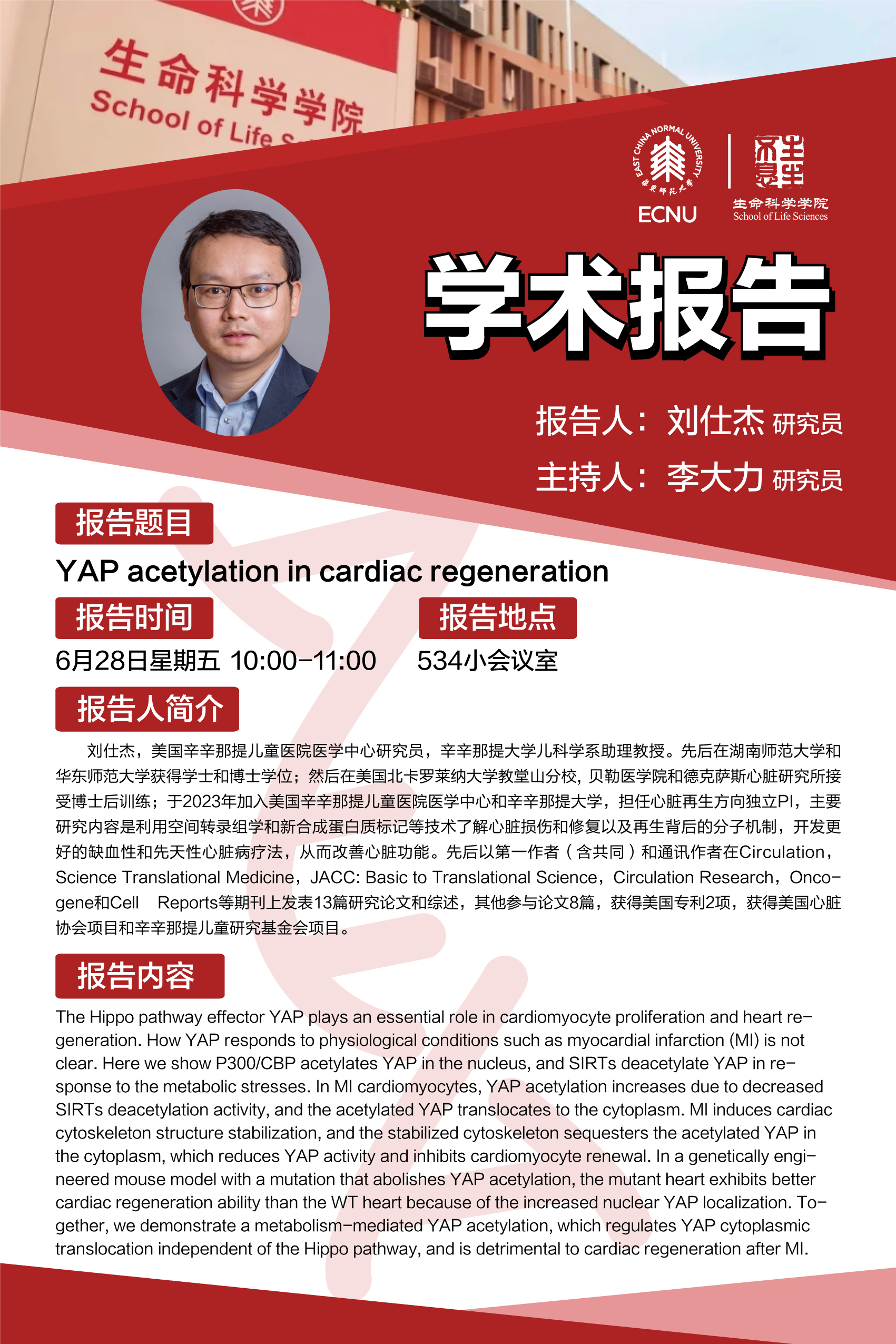报告题目:YAP acetylation in cardiac regeneration
报 告 人:刘仕杰 研究员
主 持 人:李大力 研究员
报告时间:2024年6月28日上午10:00-11:00
报告地点:闵行校区生科院534小会议室
报告人简介:
刘仕杰,美国辛辛那提儿童医院医学中心研究员,辛辛那提大学儿科学系助理教授。先后在湖南师范大学和华东师范大学获得学士和博士学位;然后在美国北卡罗莱纳大学教堂山分校, 贝勒医学院和德克萨斯心脏研究所接受博士后训练;于2023年加入美国辛辛那提儿童医院医学中心和辛辛那提大学,担任心脏再生方向独立PI,主要研究内容是利用空间转录组学和新合成蛋白质标记等技术了解心脏损伤和修复以及再生背后的分子机制,开发更好的缺血性和先天性心脏病疗法,从而改善心脏功能。先后以第一作者(含共同)和通讯作者在Circulation,Science Translational Medicine,JACC: Basic to Translational Science,Circulation Research,Oncogene和Cell Reports等期刊上发表13篇研究论文和综述,其他参与论文8篇,获得美国专利2项,获得美国心脏协会项目和辛辛那提儿童研究基金会项目。
报告简介:
The Hippo pathway effector YAP plays an essential role in cardiomyocyte proliferation and heart regeneration. How YAP responds to physiological conditions such as myocardial infarction (MI) is not clear. Here we show P300/CBP acetylates YAP in the nucleus, and SIRTs deacetylate YAP in response to the metabolic stresses. In MI cardiomyocytes, YAP acetylation increases due to decreased SIRTs deacetylation activity, and the acetylated YAP translocates to the cytoplasm. MI induces cardiac cytoskeleton structure stabilization, and the stabilized cytoskeleton sequesters the acetylated YAP in the cytoplasm, which reduces YAP activity and inhibits cardiomyocyte renewal. In a genetically engineered mouse model with a mutation that abolishes YAP acetylation, the mutant heart exhibits better cardiac regeneration ability than the WT heart because of the increased nuclear YAP localization. Together, we demonstrate a metabolism-mediated YAP acetylation, which regulates YAP cytoplasmic translocation independent of the Hippo pathway, and is detrimental to cardiac regeneration after MI.
